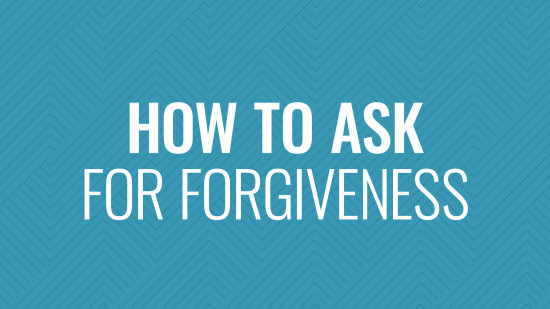In this series on confession, we’ve talked about what confession is and the reasons why we should confess. But even if you know the what and the why, there is still the question of how to confess sin, as well as who you should confess to.
Who You Should Confess To
Since confession means to admit something, who should you admit sin to?
Re:generation describes it like this in Step 5: “We confess to God, to ourselves, and to another human being the exact nature of our sins.” Here’s what each of those means:
- Acknowledge sin to yourself. “Confess to yourself” might sound a bit funny, but before you can confess to others, you do need to first admit to yourself that you have sinned. You have to humble yourself and recognize that you don’t live up to God’s standards. We don’t define what sin is; God does. And since all sin is a big deal to God, we shouldn’t try to minimize it or just sweep it under the rug.
- Confess to God. All sins are ultimately sins against God (Psalm 51:4), and we should admit those sins to Him and ask for forgiveness (Psalm 32:5). God knows everything, so He already knows that you have sinned; by confessing, you are just acknowledging what you have done and agreeing with Him that it is a sin.
- Confess to someone you trust. James 5:16 tells us to “confess your sins to one another and pray for one another, that you may be healed.” Confessing to another believer is a way to bring things into the light and get help in overcoming sin struggles. You should confess to a person you trust to have your best interests in mind, such as someone in your community group. That’s why one of our suggested community group questions is “How are you feeding your flesh?”; it’s an invitation to confess to someone you trust so that you can pray for each other and be healed.
Confessing to one another in community can bring healing not only for yourself, but for the person you are confessing to. Courage is contagious, and being willing to share about your own failings can inspire others to also take that step of confessing and seeking healing from sin.
What You Should Confess
So what should you confess to God, to yourself, and to a person you trust? The answer is “sin,” but it can be helpful to clarify what that means.
Some sins are obvious: if you lie, steal, murder, commit adultery, or break any of the other 10 Commandments, those are clearly sinful actions. However, Jesus explained that you can also sin in your thoughts. He relates hate to murder and lust to adultery (Matthew 5:21-28). If you are actively entertaining such thoughts and choosing to feed them, that is a sin that you should confess. Confessing and repenting sins at the thought level is a good way to avoid acting out on those thoughts and committing physical sins that you would then regret.
There is a difference between having sinful thoughts versus merely being tempted to sin. Although temptation can lead to sin (James 1:13-15), temptation itself is not a sin, and it is therefore not something you have to confess. It is still wise to talk with community about the ways you feel tempted, though, because they might have ideas for how you can avoid that temptation.
You should confess every sin, including what we sometimes call “the last two percent”—those things that you are reluctant to share because of shame or fear. Those are often the most important things to confess, because they are areas where you most need to experience freedom and grace.
Although you should confess every sin, you don’t have to repeatedly re-confess past sins that you’ve already fully confessed and repented from. In other words, don’t get stuck in shame and guilt. You are forgiven and clean (1 John 1:9) and can move on, leaving the past behind (Philippians 3:13-14).
Tips for Confession
When you do have something to confess, here are a few tips (also adapted from re:generation) on how you should confess:
- Pray. You confess sin to God through prayer, but you can also pray for the courage to confess to another person, and ask Him to help you see any other things you need to confess (Psalm 139:23-24).
- Grieve your sin. It is appropriate to mourn your sin and the hurt and separation it has caused (Psalm 51:17; James 4:8-10). Grieving your sin and recognizing its seriousness will help you repent and turn away from sin (2 Corinthians 7:10).
- Be specific. Don’t hide your sin in generalities. For example, if you merely say you “struggled with lust” when what really happened is you binged on pornography, that is likely you trying to minimize your sin, control your image, or avoid accountability. People who love sinning try to protect their sin by not naming it specifically. If you really want to be healed, you should confess exactly what you did and seek help in making specific changes to remove that sin from your life.
- Trust God. Believe God’s promises that you are forgiven, that confession is for your own benefit, and that true life and joy are found in Him (Psalm 16:11). Christ has paid for the sin you confessed, and there is no condemnation for those who trust in Him (Romans 8:1).
Of course, when you “confess your sins to one another,” that means that other people will also be confessing sins to you. You can learn about how to respond to confession here.


